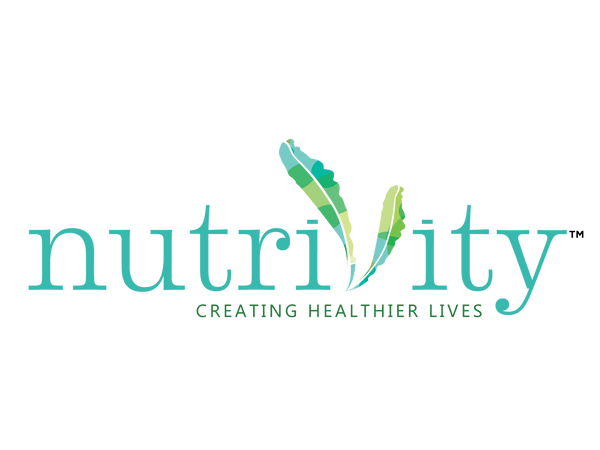
Introduction:
The Importance of Prenatal Vitamins for a Healthy Pregnancy
During pregnancy, proper nutrition is essential for the health and well-being of both the mother and the developing baby. One important aspect of maintaining a healthy pregnancy is ensuring an adequate intake of essential nutrients. Prenatal vitamins play a crucial role in meeting these nutritional needs.
Prenatal vitamins are specifically formulated to provide pregnant women with the necessary vitamins and minerals that may be lacking in their regular diet. These supplements are designed to support the growth and development of the baby, as well as maintain the overall health of the mother.
Factors to Consider When Choosing Prenatal Vitamins for Pregnancy Nutrition
- Taking prenatal vitamins during pregnancy is important for both the mother and the developing baby. Here are some tips to take them effectively and safely:
- Consult your healthcare provider: Before starting any prenatal vitamin regimen, it is important to talk to your healthcare provider. They can recommend the right prenatal vitamin for you based on your specific needs.
- Start early: Ideally, you should start taking prenatal vitamins before you conceive or as soon as you find out you are pregnant. This ensures that your body gets the necessary nutrients from the early stages of pregnancy.
- Follow the recommended dosage: Read the instructions on the prenatal vitamin packaging carefully and follow the recommended dosage. It is generally advised to take one pill per day, but your healthcare provider may suggest a different dosage based on your requirements.
- Take with food: Prenatal vitamins are known to cause nausea or an upset stomach in some women. Taking them with food can help alleviate these side effects.
- Stay hydrated: Make sure to drink plenty of water when taking prenatal vitamins to help your body absorb the nutrients effectively.
- Be consistent: Try to take your prenatal vitamin at the same time every day to establish a routine. Setting a reminder or incorporating it into your daily routine can help you remember to take them consistently.
- Store properly: Keep your prenatal vitamins in a cool, dry place, away from direct sunlight.
Understanding Your Nutritional Needs During Pregnancy
- Key nutrients needed during pregnancy: folic acid, iron, calcium, vitamin D, omega-3 fatty acids
- The role of each nutrient in supporting a healthy pregnancy
- Daily recommended intake of prenatal vitamins
Key Pregnancy Nutrients:
You need more Vitamin D, calcium, iron and folic acid than you did before pregnancy for a nourishing pregnancy:
-
Folic acid:
Folic acid has vitamin B that can prevent certain birth defects. Normally you need 400 micrograms of this but during pregnancy and when breastfeeding, you need 600 micrograms per day from vitamins or foods. It can be difficult to get this much amount from food alone, so for balancing the intake you can take supplements that contain folic acid.
-
Iron:
Iron is an important nutrient for a baby’s growth and brain development. During pregnancy, the amount of blood maximizes in your body, so you need iron for you and for your baby. You must get 37 milligrams of iron per day.
-
Calcium:
Calcium reduces the risk of preeclampsia, a serious condition that increases blood pressure. Calcium also helps in building your baby’s teeth and bones. A pregnant woman should get 1000 milligrams of calcium per day.
-
Vitamin D:
It is because of this nutrient, the baby is able to build their teeth and bones. It is vital for every woman, pregnant or not, that they must get 600 international units of vitamin a day.
Adopting a healthy diet before pregnancy is crucial for ensuring the well-being of both the mother for pregnancy nutrition. A balanced and nutritious diet can help prepare the body for pregnancy and support the growth and development of the foetus. Here are some general guidelines for a healthy diet before pregnancy.
Folate-Rich Foods:
Consume foods rich in folate such as green leafy vegetables (spinach, methi, and broccoli), lentils (dal), beans, peas, and citrus fruits. Folate is essential for preventing neural tube defects in the developing baby.
Iron-Rich Foods:
Include iron-rich foods to prevent anemia during pregnancy. Good sources include green leafy vegetables, lentils, beans, tofu, lean meats, and fortified cereals.
Calcium Sources:
Get an adequate amount of calcium for bone health. Include dairy products like milk, yogurt, and paneer. If you're lactose intolerant or follow a vegetarian or vegan diet, consider fortified plant-based milk alternatives, tofu, and green leafy vegetables.
Protein-Rich Foods:
Ensure you're getting enough protein from sources like pulses (dal), beans, lentils, eggs, dairy products, and lean meats. Protein is crucial for the baby's growth and development.
Healthy Fats:
Include sources of healthy fats in your diet, such as nuts, seeds, avocados, and olive oil. Omega-3 fatty acids, found in fish (choose low-mercury options), flaxseeds, and walnuts, are important for brain development.
Whole Grains:
Choose whole grains like brown rice, whole wheat, oats, and quinoa for a good source of fiber and essential nutrients.
Hydration:
Stay well-hydrated by drinking plenty of water, coconut water, and herbal teas. Limit the intake of caffeinated beverages.
Limit Processed Foods:
Minimize the intake of processed and junk foods, as they are often high in unhealthy fats, sugars, and additives.
Fruits and Vegetables:
Include a variety of colourful fruits and vegetables to ensure a wide range of vitamins and minerals. These provide antioxidants that support overall health.
Avoid Excessive Sugar and Salt:
Limit the intake of sugary foods and beverages, and moderate your salt intake. Opt for natural sweeteners like jaggery and honey when needed.
Regular Physical Activity:
Engage in regular physical activity, such as walking, yoga, or swimming, to maintain a healthy weight and promote overall well-being. In the journey toward a healthy pregnancy, the significance of prenatal vitamins cannot be overstated. These supplements provide a valuable boost of essential nutrients crucial for foetal development. However, it's equally imperative to recognize that optimal maternal and foetal health extends beyond a pill. A well-rounded and nutrient-rich diet acts as the cornerstone of a healthy pregnancy. Embracing a diverse range of foods, including leafy greens, whole grains, lean proteins, and dairy, ensures a comprehensive intake of essential vitamins and minerals. This holistic approach not only addresses nutritional needs but also promotes overall well-being, setting the stage for a thriving pregnancy
So, while diligently incorporating prenatal vitamins into your routine, let's not forget the nourishing power of a balanced and wholesome diet. Together, they form a harmonious symphony, laying the foundation for a healthy, vibrant, and joyous journey into motherhood and Pregnancy Nutrition.

